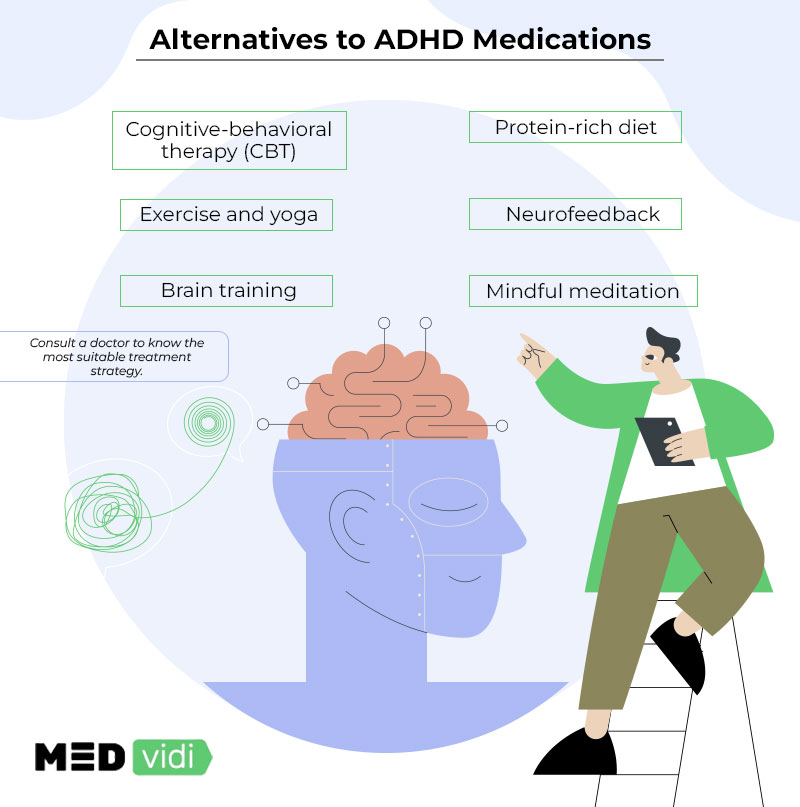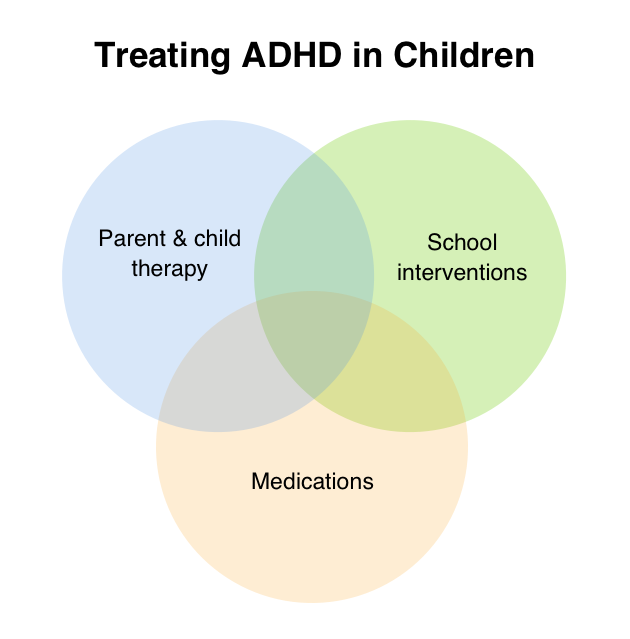The Benefits of Individualized ADHD Treatment Prepare For Better Outcomes
The execution of tailored ADHD treatment plans has emerged as a pivotal strategy in enhancing healing end results for people influenced by this condition (ADHD treatment). By recognizing the unique indications of ADHD in each individual, these personalized interventions promote better interaction and motivation, ultimately leading to extra reliable coping techniques.
Understanding ADHD Variability
Although Attention-Deficit/Hyperactivity Disorder (ADHD) is commonly viewed as a single condition, its indications can vary substantially among people. Gender differences additionally play a role, as males are extra frequently diagnosed with ADHD and often show a lot more obvious signs and symptoms, whereas females might present with less apparent inattentiveness.
Furthermore, people with ADHD might experience a spectrum of emotional and behavioral obstacles, such as anxiety or oppositional defiance, that can complicate diagnosis and therapy. The communication of these variables can lead to diverse experiences of ADHD, requiring a nuanced understanding of the disorder. It is also worth noting that ADHD can present in a different way throughout numerous social contexts, affecting just how signs and symptoms are recognized and dealt with. This understanding highlights the value of recognizing ADHD as a multifaceted condition, which calls for customized methods to therapy that take into consideration the special demands and experiences of each person.
Trick Elements of Personalization
Customized ADHD treatment plans are grounded in numerous crucial parts that make certain reliable management of the condition. A thorough analysis is important, including standardized score scales, interviews, and behavior monitorings. This thorough evaluation permits clinicians to recognize the person's unique signs and symptoms, strengths, and difficulties.
Second, the participation of multiple stakeholders, consisting of parents, educators, and the individual, adds to a holistic sight of the individual's demands. Collaboration fosters a supportive setting that can adapt to the individual's context and lifestyle.
Third, treatment strategies must be versatile and versatile, permitting for alterations based upon recurring comments and the individual's progressing demands. This adaptability allows the integration of numerous restorative approaches, such as behavioral treatments, psychoeducation, and drug management.
Additionally, social and contextual elements need to be considered. Recognizing the individual's history, worths, and choices ensures that the treatment is appropriate and respectful.
Last but not least, normal follow-ups and analyses are vital to check progress and make required modifications. By concentrating on these vital parts, personalized ADHD therapy strategies can dramatically enhance the efficiency of interventions, causing enhanced end results for people with ADHD.
Boosted Involvement and Motivation
To successfully advertise boosted involvement and inspiration in people with ADHD, it is necessary to include strategies that reverberate with their passions and toughness. Personalized treatment plans that align with a person's enthusiasms can result in enhanced participation in therapeutic tasks, cultivating a feeling of ownership and enthusiasm for the process.
Utilizing interactive and imaginative strategies can additionally substantially improve motivation. For instance, including gamification aspects or real-world applications of skills can make tasks extra attractive and appropriate. This not only records interest however also reinforces finding out with pleasurable experiences.
Furthermore, establishing attainable and meaningful objectives tailored to the person can boost motivation. When people see their development in the direction of directly significant purposes, they are much more likely to continue to be engaged. Normal feedback and acknowledgment of accomplishments can better endure inspiration, developing a positive comments loop that urges ongoing effort.
Last but not least, fostering an encouraging environment where individuals really feel understood and valued can substantially affect their engagement degrees. When therapy plans are established collaboratively, incorporating input from the person, they are more probable to really feel bought their journey, eventually bring about enhanced results in managing ADHD.
Improved Coping Methods
Establishing improved dealing techniques is critical for individuals with ADHD, as it furnishes them with efficient devices to browse day-to-day difficulties. A customized treatment strategy permits the recognition of specific coping mechanisms tailored to the individual's special demands and conditions - ADHD treatment. Techniques such as mindfulness, time management skills, and organizational techniques can be integrated into everyday routines, promoting a feeling of control and minimizing stress and anxiety
Mindfulness techniques, consisting of reflection and deep-breathing workouts, aid people with ADHD concentrate their have a peek here focus and manage their feelings. Time monitoring approaches, such as using timers or damaging jobs right into smaller sized, workable steps, can home alleviate feelings of overwhelm. Additionally, organizational tools like planners and lists can enhance efficiency and accountability.
Long-term Positive Outcomes
Implementing personalized ADHD therapy strategies can cause considerable long-term positive outcomes for individuals. These customized strategies, which take into consideration one-of-a-kind signs and symptoms, preferences, and life circumstances, promote extra efficient management of ADHD symptoms with time. By concentrating on the particular needs of the person, these plans boost adherence to therapy protocols and foster better interaction in restorative activities.

Additionally, individualized therapy plans can considerably decrease the risk of comorbid conditions, such as anxiety and depression, which are often connected with ADHD. Early treatment and constant support help people develop durability and coping techniques, promoting total psychological wellness.
Inevitably, the long-lasting positive outcomes of individualized ADHD treatment prepares not just improve the top quality of life for people yet also add to their total health and success in numerous life domains. This holistic method emphasizes the importance of personalized treatment in taking care of ADHD successfully.
Conclusion
